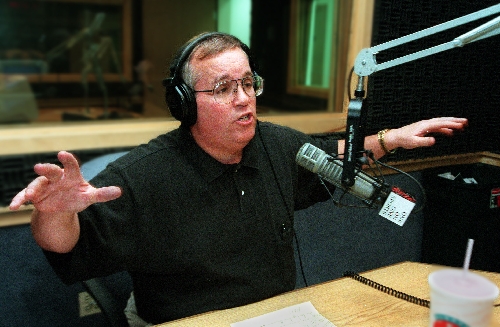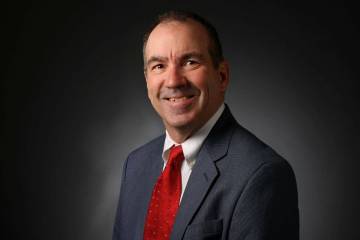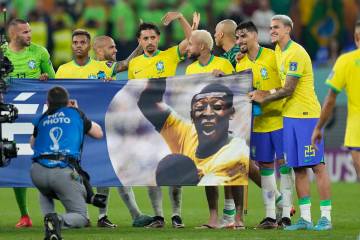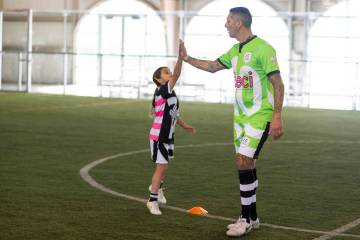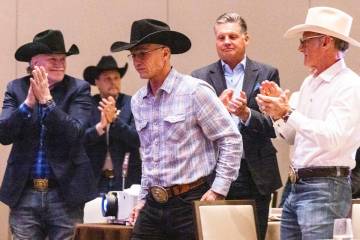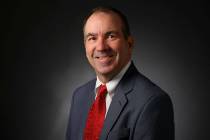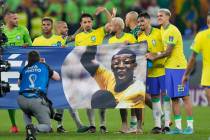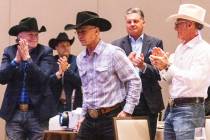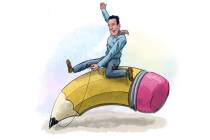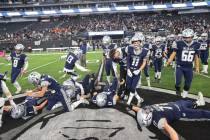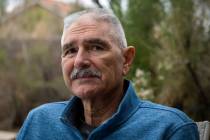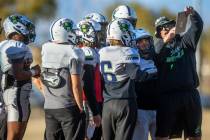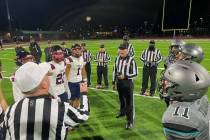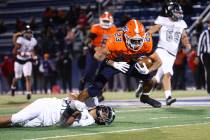Everyday fans give fitting send-off to ‘Papa Joe,’ the everyday man
I won't forget my first face-to-face encounter with Armand "Papa Joe" Chevalier, the popular Las Vegas and syndicated sports radio host who died Friday after suffering a stroke in March.
We were pumping gas, at an ARCO am/pm or equivalent, near the UNLV campus.
He called me by name and started to chit-chat about sports. I would have called him by his, except I had no earthly idea who he was, other than his voice sounded familiar.
By this time, Papa Joe was on his way to becoming one of the leaders in his industry. But our only meetings had been voice to voice, not face to face.
He must have noticed the quizzical look, because then he said his name.
I was momentarily stunned. Sports talk hosts are supposed to be intimidating guys with names such as "Hacksaw" or "Brick," or sport Fu Manchus that complement beady eyes, like Jim Rome. The big guy holding the gas pump looked like Poppin' Fresh, the Pillsbury Doughboy.
Everybody has a Papa Joe story or anecdote -- and that's only slight hyperbole, judging by the volume of email and phone calls and remembrances left on message boards since the news of his death. That is one of mine. Papa Joe Chevalier, an everyday man, whose views and opinions reflected those of the everyday fan, pumping gas at a convenience store, an everyday thing the everyday man does.
In a way, this is what made Papa Joe uncommonly good. He could relate to you, and you to him.
He and I were friends, but mostly in the way Teri Garr, the actress, was friends with David Letterman.
When Papa Joe moved to Chicago to do his syndicated show, I rarely heard from him; he had a major following by then and could get big stars to come on, such as Mike Ditka. (In truth, I'm not aware that Ditka ever did Papa Joe's show, but those are the kind of guests Papa could get in those days, when he made lots of money.)
When he returned to Las Vegas following a contract dispute -- he always hated the weather in Chicago, anyway -- I began getting regular calls from his producer, Kaan Soler, who would say that Joe had liked something I'd written and would I like to come on the show and talk about it, in say, 15 minutes? This is how I imagined it went for Teri Garr with Letterman's producer when Drew Barrymore flaked at the last minute.
That's mostly how it went until Papa Joe went off the air, about two years ago, when the economy went soft and his sponsors went away. He wasn't making lots of money anymore. He wasn't making any money. Then it was April 7, a couple of weeks after his stroke. And I when I poked my head into his hospital room, it was my turn to say my name.
His right side was paralyzed, but other than a bad case of hospital hair, he was pretty much the same guy I thought I knew: the one who was opinionated and passionate about his sports and always cranky about something -- in this case, the hospital food. His brother, Art, Joe's only family -- their parents died years ago, and Papa Joe was a confirmed bachelor -- said Joe wasn't eating much. So I took him a turkey sandwich from Capriotti's, one of his favorite places to dine.
But it wasn't long before he stopped eating again. And it wasn't long after that he died, at age 62.
He didn't have to, not based on how I and others saw him at the hospital. The stroke might have rendered his right side useless, but this was Papa Joe Chevalier, a larger-than-life personality who used his mind and mouth to entertain. A man in South Carolina, a program director or something at one of the many stations that had carried his show, had even promised to put Joe back on the air, when he felt up to it.
He never felt up to it.
He had been dealt a lousy hand and chose not to play it. He must have had his reasons. He did not express them.
It might have been the one and only time that Armand "Papa Joe" Chevalier did not say what was on his mind.
Las Vegas Review-Journal columnist Ron Kantowski can be reached at rkantowski@reviewjournal.com or 702-383-0352. Follow him on Twitter: @ronkantowski.



